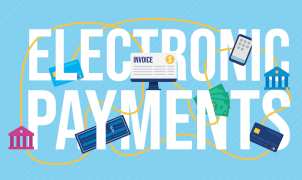In a world dominated by digital transactions, the significance of cash services in empowering financial freedom cannot be overstated. This essay delves into the various dimensions of cash services and how they contribute to individual financial empowerment.

1. Financial Independence
Cash services empower individuals by providing them with a means of financial independence. When using cash, individuals have the freedom to manage their transactions without relying on digital intermediaries or platforms. This self-reliance fosters a sense of control over one’s financial decisions.
2. Budgeting and Conscious Spending
Physical cash encourages budgeting and conscious spending. Holding tangible money allows individuals to visually track their expenses and allocate specific amounts for different purposes. This hands-on approach promotes a greater awareness of one’s financial situation, leading to more informed choices.
3. Inclusivity and Accessibility
Cash services ensure inclusivity by catering to individuals who may not have access to digital banking or electronic payment systems. This inclusivity extends to rural areas and underserved communities where digital infrastructure may be lacking. Cash enables financial participation for everyone.
4. Privacy and Security
Cash transactions offer a level of privacy and security that digital transactions often lack. When using cash, individuals do not leave a digital trail of their spending habits, reducing the risk of identity theft or cyber fraud. This added layer of security contributes to a greater sense of financial freedom.
5. Cultural Practices and Flexibility
Cash services respect cultural practices and traditions. Many societies have customs involving physical currency, such as giving cash gifts or participating in community events. Cash’s flexibility accommodates these practices, allowing individuals to engage in familiar financial interactions.
Unveiling the Potential of Cash Services for Financial Empowerment
In a rapidly evolving financial landscape, cash services continue to play a crucial role in empowering individuals to take control of their financial well-being. This essay explores how cash services unveil opportunities for financial empowerment in various aspects of life.
1. Building Financial Responsibility
Cash services contribute to building financial responsibility by encouraging individuals to make conscious spending choices. The act of physically parting with cash makes spending more deliberate, fostering a sense of accountability for one’s financial decisions.
2. Enhancing Money Management Skills
Using cash nurtures money management skills. When people handle physical money, they develop a better understanding of denominations and calculations. This practical experience lays the foundation for broader financial literacy and improved money-handling abilities.
3. Reducing Digital Dependency
While digital transactions offer convenience, they can also lead to dependency on technology. Cash services offer an alternative that reduces reliance on digital platforms, providing a sense of autonomy and resilience against technological disruptions.
4. Financial Confidence
Cash services boost financial confidence by allowing individuals to physically see and manage their money. This tangible interaction cultivates a deeper connection to one’s financial resources, fostering a positive attitude toward financial management.
5. Realizing Economic Opportunities
Cash services can open doors to economic opportunities, particularly for small businesses and local vendors. By accepting cash, these enterprises can cater to a broader customer base, including those who prefer or rely on physical currency.

Harnessing Financial Freedom through Cash Services
In an era of digital transactions, cash services remain an essential tool for harnessing financial freedom. This essay explores the multifaceted ways in which cash services empower individuals to take charge of their financial lives.
1. Empowerment through Tangibility
The tangible nature of cash empowers individuals to physically engage with their finances. Counting, sorting, and managing cash foster a hands-on approach that deepens financial awareness and promotes responsible money management.
2. Flexibility and Control
Cash services provide unparalleled flexibility and control over financial transactions. Individuals can determine the exact amount of money to spend, eliminating the risk of overspending or accumulating debt. This control contributes to a sense of empowerment.
3. Inclusion and Accessibility
Cash services bridge the digital divide, ensuring that everyone, regardless of technological access, can engage in financial activities. This inclusivity is crucial for promoting financial independence and empowerment among diverse communities.
4. Privacy and Security
Using cash enhances privacy and security in financial transactions. Unlike digital payments, cash transactions do not leave a digital trail that can be exploited by cybercriminals. This added layer of security contributes to individuals’ overall sense of financial freedom.
5. Cultivating Financial Mindfulness
Cash services foster financial mindfulness by prompting individuals to consider their spending choices more thoughtfully. Physically parting with money encourages individuals to evaluate the value and necessity of their purchases, promoting mindful consumption.
In conclusion, cash services are a powerful tool for achieving financial empowerment in various aspects of life. From building financial responsibility and enhancing money management skills to promoting inclusivity and fostering financial confidence, cash services offer a tangible pathway to greater financial freedom.























































































































































